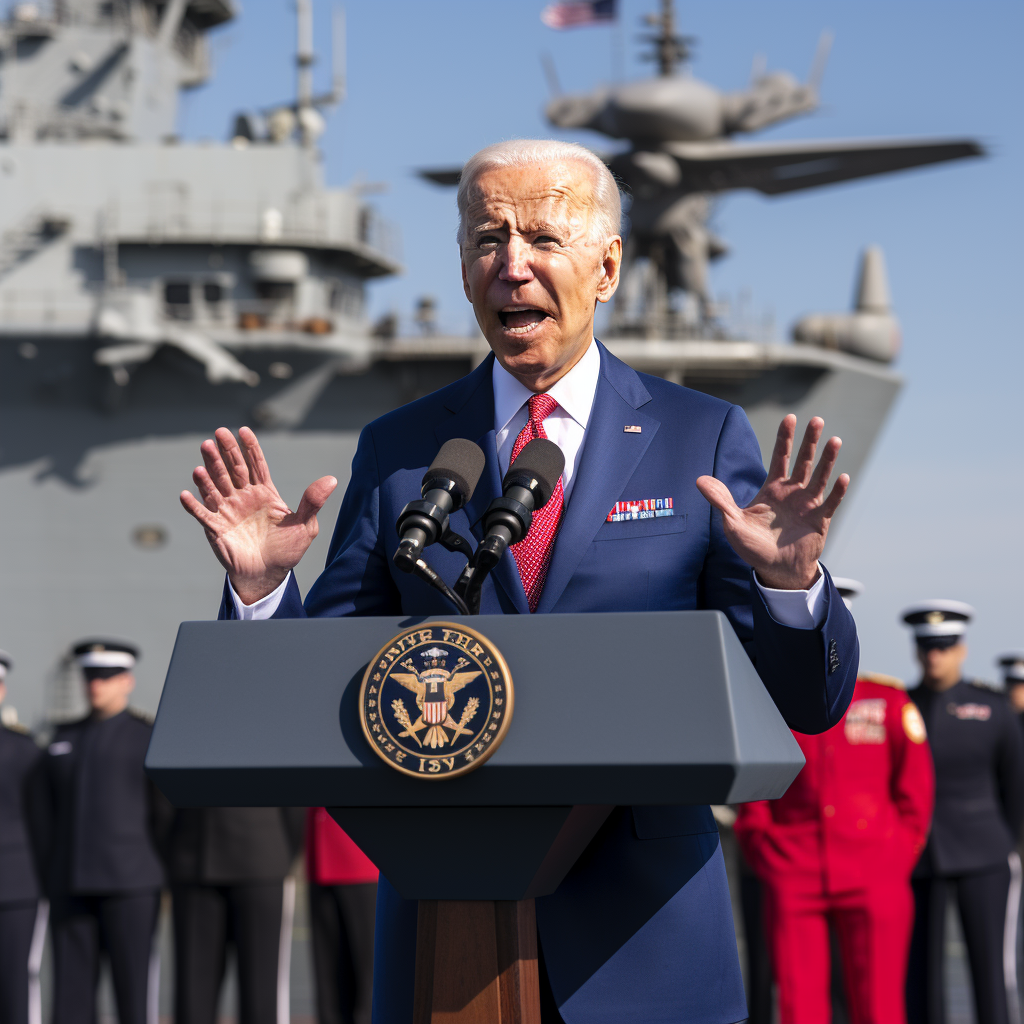The intricate web woven by American foreign policy has never been more apparent than in the current conundrum where the United States, historically a harbinger of democracy and international order, finds itself the subject of a paradox that belies a straightforward commitment to peace. This dichotomy between the U.S. as both the advocate for a ceasefire in the Middle East and a purveyor of military might to Israel has cast a long shadow over its role as a neutral mediator.
Contradictions on the Global Stage
On the surface, the call for peace is unambiguous. A U.S. official, standing before the world stage, reaffirms the nation’s dedication to resolving the conflict through peaceful means. They voice the intentions of de-escalation and diplomacy, a narrative in line with the values the United States has long espoused. Yet, the simultaneous movements of aircraft packed to the brim with bombs, destined for Israeli soil, tells a secondary, more disquieting story.
The international community, thus, finds itself at a crossroads of perception. How does one align the well-pronounced aims of peace with the material support of warfare? Countries, diplomats, and United Nations representatives collectively furrow their brows as they bear witness to an American policy that sends mixed signals—a narrative that ties up foreign policy experts in knotty debates over the rightful course of action.
Muddled Messages and Satirical Spotlight
This political theater, replete with its mixed messaging, has not escaped the attention of satirists and cynics alike. The image of the peacemaking arbitrator who equips one side of the conflict is ripe for caricature and lampooning. Late-night sketches and social media memes alike dive into this rich seam of contradiction, illustrating the absurdity with a poignant humor that resonates with a global audience.
“The U.S. seems to be playing a high-stakes game of chess where it controls both a king and a rook on opposite sides,” quips a political cartoonist, capturing the sentiment of a befuddled observer striving to make sense of the geopolitical game board. This unsettling jesting reflects a deeper, more pervasive uncertainty amid the international citizenry: What to make of a nation that appears to play both sides?
The Ethical Quagmire
Beyond the realm of humor and satire lies a sobering discussion among ethicists and legal experts. They ponder the ethical ramifications of the U.S. position, dissecting the complex interplay between intentions and actions. The tenability of the U.S.’ moral stance becomes questionable when its peace overtures are made under the shadow of armament shipments.
This dissonance also highlights the nuanced demands of international relationships and the balancing act of global politics. Is it possible, they ask, to nourish the roots of peace while watering the seeds of conflict? The United States, with its substantial influence and military capabilities, juggles these dualities, sparking contentious discourse regarding the true essence and goals of its foreign policy.
A Waiting World
As the saga unfolds, the world watches—a world that is no stranger to the complexities of war and diplomacy. Yet, there remains a thread of hope that the U.S. will reconcile its conflicting roles, forming a cohesive strategy that aligns its diplomatic voice with its tangible actions. Such consistency is essential not only for the resolution of the current conflict but also for the credibility of future engagements on the international stage.
In the meantime, scholars, policymakers, and the watching public continue to deconstruct the multifaceted character of modern diplomacy, where the United States stands at the crux of the paradox. These reflections fuel an ongoing dialogue, crucial for the evolution of a world order where the aspirations for peace are not undermined by the machinery of war.
